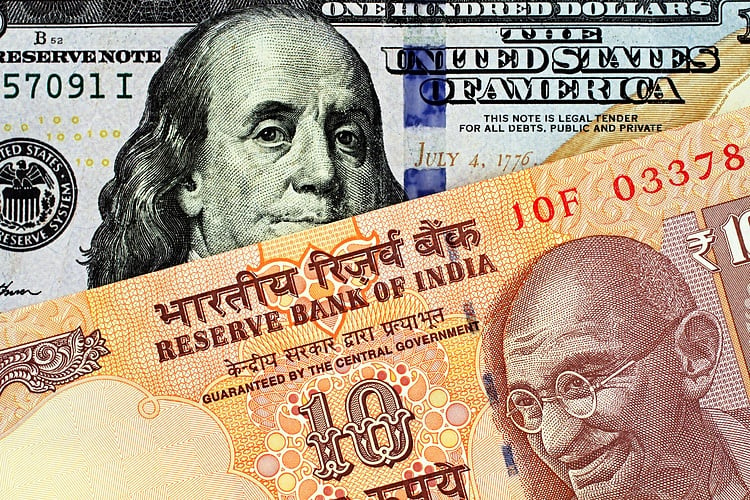HTML tags have been removed for clarity.
The Indian Rupee lost ground on Monday due to renewed US Dollar demand. The Reserve Bank of India (RBI) expected a 6.5% expansion in the Indian economy from July to September. Indian GDP data (Q2) and US growth numbers (Q3) will be the main focus this week. The INR edged lower on Monday amidst USD demand, despite IPO-related inflows offering some support. Underlying growth trends in India remain robust, with retail inflation slowing due to monetary policy and supply-side initiatives.
RBI Governor Shaktikanta Das projected 6.5% growth for the Indian economy for July to September, but cautioned that the economy still faces challenges. Additionally, a global economic slowdown and a decrease in government capital expenditure could potentially impact the nation’s growth trajectory.
The Indian market was closed on Monday for the Guru Nanak Jayanti holiday. Key events this week include India’s Gross Domestic Product (GDP) Quarterly for the second quarter (Q2), US GDP data for Q3, Indian Fiscal Deficit data, RBI Monetary and Credit Information Review, and Infrastructure Output.
The Indian Rupee maintains a positive stance as the USD/INR pair trades within a range of 82.80–83.40 since September. The upper boundary of the trading range at 83.40 will be the immediate resistance level for USD/INR. Indoors, any follow-through selling below the 83.00 psychological level will see a drop to the confluence of the lower limit of the trading range and a low of September 12 at 82.80.
The Reserve Bank of Australia (RBA) sets interest rates and manages monetary policy for Australia, with decisions made by a board of governors at 11 meetings a year. Its main tool for maintaining price stability and economic prosperity is by raising or lowering interest rates.
Macroeconomic data, such as GDP, Manufacturing and Services PMIs, employment, and consumer sentiment surveys, can influence the value of the Australian Dollar (AUD). Quantitative Easing (QE) and Quantitative Tightening (QT) also play a role in the value of the AUD.
